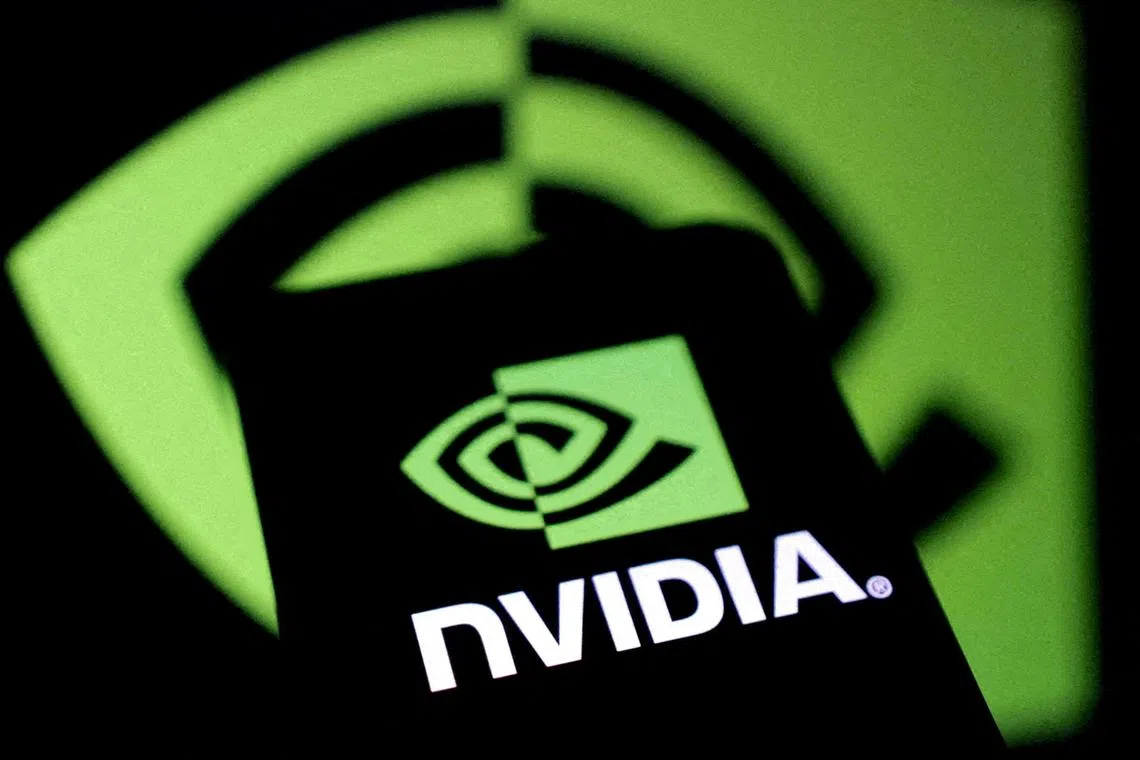Two Chinese nationals in California accused of illegally shipping Nvidia AI chips to China
Sign up now: Get ST's newsletters delivered to your inbox

The illegally shipped AI chips included Nvidia H100s, which are advanced chips that can be used to train large language models.
PHOTO: REUTERS
LOS ANGELES, California - Two Chinese nationals were arrested in California and charged with illegally shipping tens of millions of dollars’ worth of artificial intelligence (AI) chips to China, including Nvidia H100s, said the US Justice Department on Aug 5.
Geng Chuan, 28, from Pasadena, and Yang Shiwei, 28, from El Monte, exported the advanced Nvidia chips and other technology to China from October 2022 through July 2025 without obtaining the required licences from the US Commerce Department, a criminal complaint says.
According to the complaint, Geng and Yang’s El Monte-based company, ALX Solutions, was founded in 2022, shortly after the US imposed sweeping export controls on technology to China to slow Beijing’s military modernisation and began to require licences for the chips. China opposed the US move as harming normal trade.
Over 20 shipments from ALX Solutions went to shipping and freight forwarding companies in Singapore and Malaysia, which are often used as transshipment points for illegal goods to China, said a federal agent, who works for the Commerce Department, in the affidavit. ALX received a US$1 million (S$1.3 million) payment from a China-based company in January 2024 and other payments from companies in Hong Kong and China, not the freight forwarding companies, the agent said.
Nvidia H100s are advanced chips that can be used to train large language models and for other applications. Records show that from at least August 2023 to July 2024, ALX Solutions bought over 200 Nvidia H100 chips from server-maker Super Micro Computer, which is based in San Jose, California, declaring that the end users were in Singapore and Japan, the agent said.
On one 2023 invoice valued at US$28,453,855, ALX said the customer was in Singapore, but a US export control officer in Singapore could not verify that the chips had arrived in the country and the company did not exist at the listed location, the document says.
“This case demonstrates that smuggling is a non-starter,” an Nvidia spokesperson said in a statement. “We primarily sell our products to well-known partners... who help us ensure that all sales comply with US export control rules.” Diverted products have “no service, support or updates”, the statement added.
Super Micro said in a statement that it was “firmly committed to compliance with all US export control regulations”. It said it did not comment on ongoing legal matters, but cooperated with the authorities in any such proceedings.
Geng and Yang appeared in the US District Court in Los Angeles late on Aug 4, according to the Justice Department. Geng, a permanent resident, was released on US$250,000 bond. Yang, who overstayed her visa, has a detention hearing on Aug 12.
Lawyers for the defendants did not respond to requests for comment. REUTERS


